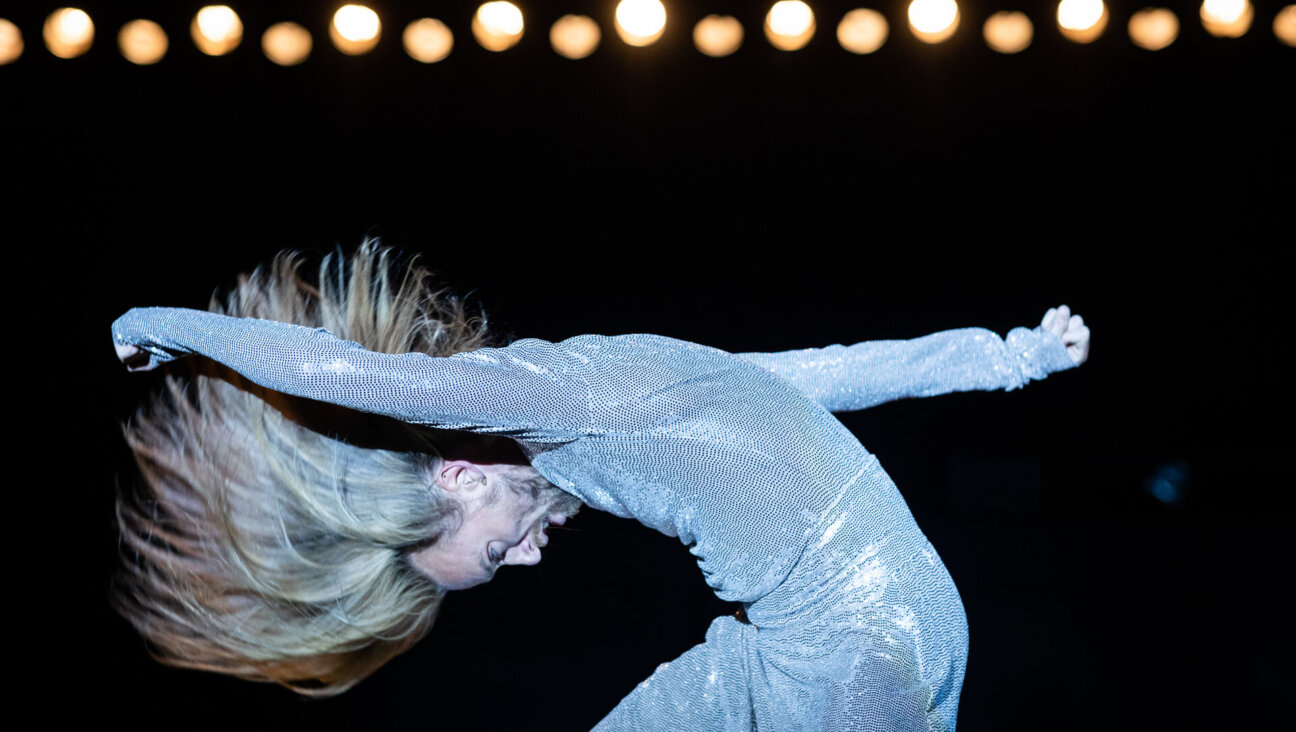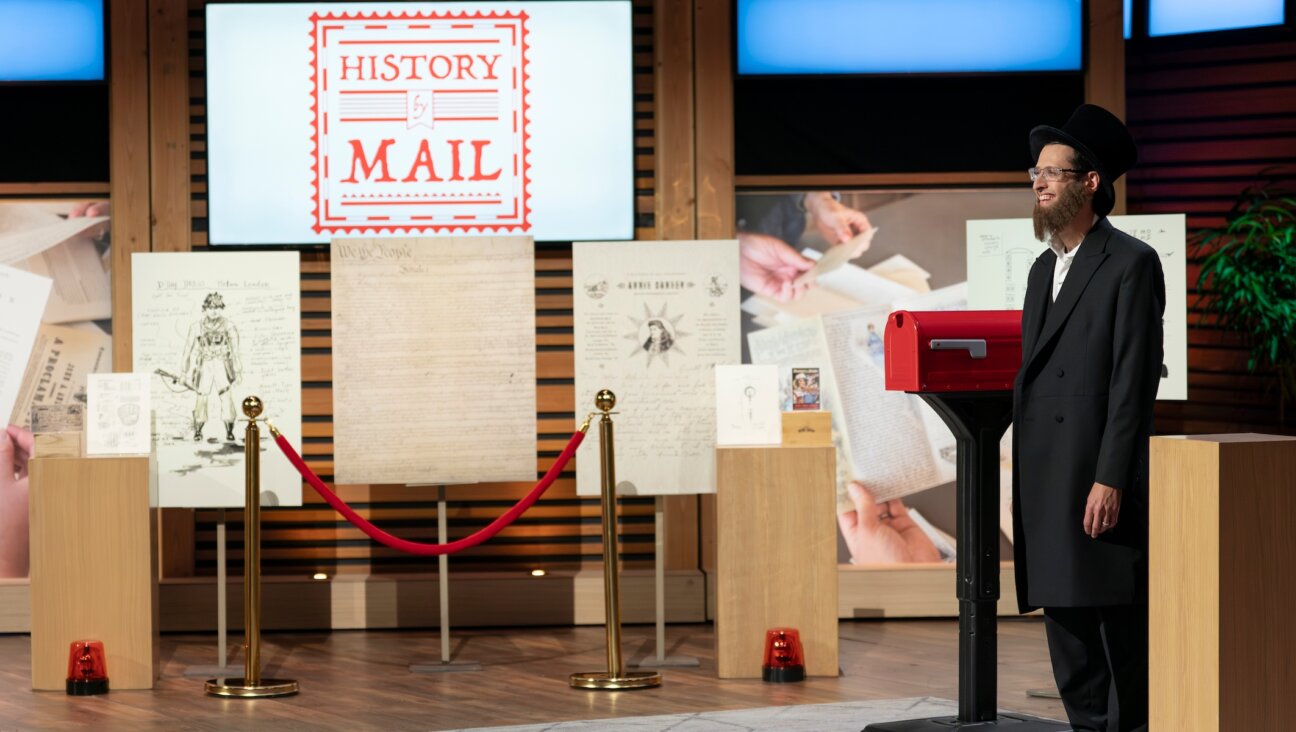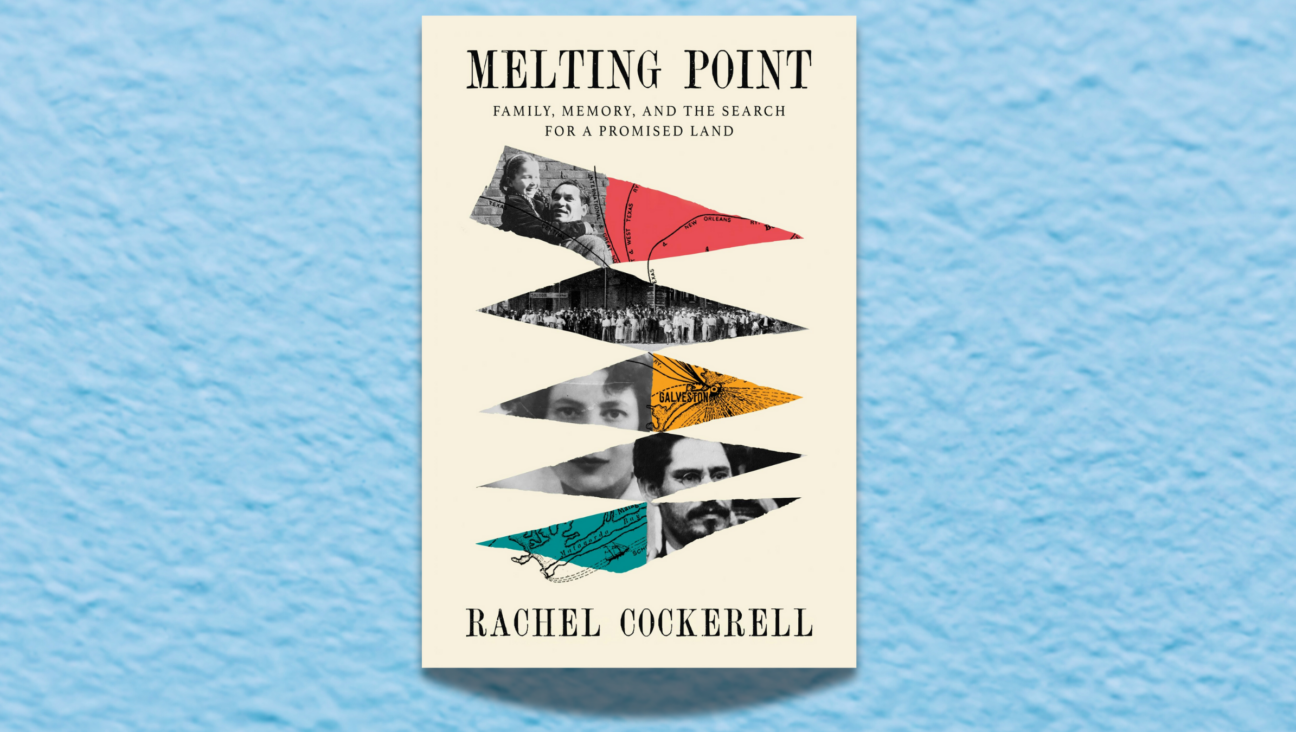Folksbiene’s ‘Romance’ Sings in the New Year
Every Jewish girl has a list of criteria that her ideal man must meet. But Khane, the bookish heroine of Abraham Goldfaden’s “A Novel Romance,” which is playing — in Yiddish — at the Manhattan JCC until January 2, 2005, has a list longer than most.
He must be romantic, of course. And passionate, too. But then she gets particular: He also must sport a black mustache, speak perfect German and — most specifically of all — be named Franz.
In short, Khane’s fantasy mate must be a character straight out of the German pulp romances that she equates with culture and refinement.
Part “Madame Bovary,” part “The Taming of the Shrew” and part toe-tapping good time, Goldfaden’s 1877 musical comedy (originally titled “Die Kaprizne Kalemoyd” or “The Capricious Bride”) is the latest offering from the Folksbiene Yiddish Theatre, which, now in its 90th season, has the distinction of being the oldest continuously operating Yiddish theater company in the world.
The play opens with Yitskhok, Khane’s long-suffering father. (“How do fathers who have several grown daughters manage?” he asks the audience. “I have just one and she’s turned me old and gray.”) Nearing his wit’s end — Khane is not only unmarried, but also more than 30 — he turns to Shloyme, the quintessential nice guy, for assistance.
Emboldened with false confidence (“This Khane situation is a walk in the park,” he sings), Shloyme makes his pitch. But when he tells Khane to drop her literary pretensions and get married already, she doesn’t care much for the advice and sends him packing.
But no sooner is Shloyme gone than Kabtsnzon enters the picture. A drunk and a bum, he is also a schemer. He knows a mark when he sees one, and he sees one in Khane. He manages to convince her that he’s the man of her dreams and then proceeds to bilk her father out of his fortune.
Starring four Folksbiene veterans (Ibi Kaufman, David Mandelbaum, Steve Sterner and Sam Guncler), the play marks Mitchell Greenberg’s first turn on the Yiddish stage. A testament to Greenberg’s adaptive power, said director Allen Lewis Rickman, is the fact that many audience members, Hasidim among them, when asked who the newcomer is, routinely answer wrongly. Two members of the New York-based band Golem provide musical accompaniment.
While the bare outlines are the same, “A Novel Romance” is actually a significantly revised version of the original. According to Rickman, who both directed and adapted the play, between a quarter and a third of the material is new. But even so, Rickman took pains to be faithful. Although he wrote the lyrics to a number of new songs, the music is Goldfaden’s.
Then again, said Rickman, the whole question of faithfulness is a tricky one in Yiddish theater, because Yiddish publishing has no Samuel French, no publisher of the so-called “acting editions” of plays, which record the stage managers’ revisions and sharpenings. When staging a Yiddish play, one must work from a script untested by the rehearsal and performance process.
Of the 400 or so plays written by Goldfaden (1840-1908), “Die Kaprizne Kalemoyd” is not among the best known. Its one and only previous New York production was in 1882. Composed just as Goldfaden was beginning his career, the play is smaller in scale than the grand nationalistic operettas (such as “Bar Kokhba” and “Shulamith”) on which his reputation rests. But the theme of national pride that later became his trademark is already in clear evidence. Although Kabtsnzon is the play’s nominal villain, Khane’s assimilationist Germanophilia is its real one.
Indeed, some of the play’s most wickedly funny moments come as Khane regales us with her “German,” which is actually the gussied up German-Yiddish hybrid known as Daytschmerisch. In a wonderful touch, the play’s English supertitles are peppered with Gothic characters (as in the font used in The New York Times logo) whenever pseudo-German is being used.
While the play does push a conservative anti-assimilationist agenda, its preaching is gentle. The moral is nothing so stark as “Honor your father” as it is “Honor your Yiddish.”
And with a play as entertaining as this, such an injunction is easy to heed.
The Forward is free to read, but it isn’t free to produce

I hope you appreciated this article. Before you go, I’d like to ask you to please support the Forward.
Now more than ever, American Jews need independent news they can trust, with reporting driven by truth, not ideology. We serve you, not any ideological agenda.
At a time when other newsrooms are closing or cutting back, the Forward has removed its paywall and invested additional resources to report on the ground from Israel and around the U.S. on the impact of the war, rising antisemitism and polarized discourse.
This is a great time to support independent Jewish journalism you rely on. Make a Passover gift today!
— Rachel Fishman Feddersen, Publisher and CEO
Most Popular
- 1

News Student protesters being deported are not ‘martyrs and heroes,’ says former antisemitism envoy
- 2

News Who is Alan Garber, the Jewish Harvard president who stood up to Trump over antisemitism?
- 3

Politics Meet America’s potential first Jewish second family: Josh Shapiro, Lori, and their 4 kids
- 4

Fast Forward Suspected arsonist intended to beat Gov. Josh Shapiro with a sledgehammer, investigators say
In Case You Missed It
-
Fast Forward Jewish students, alumni decry ‘weaponization of antisemitism’ across country
-

Opinion I first met Netanyahu in 1988. Here’s how he became the most destructive leader in Israel’s history
-

Opinion Why can Harvard stand up to Trump? Because it didn’t give in to pro-Palestinian student protests
-

Culture How an Israeli dance company shaped a Catholic school boy’s life
-
Shop the Forward Store
100% of profits support our journalism
Republish This Story
Please read before republishing
We’re happy to make this story available to republish for free, unless it originated with JTA, Haaretz or another publication (as indicated on the article) and as long as you follow our guidelines.
You must comply with the following:
- Credit the Forward
- Retain our pixel
- Preserve our canonical link in Google search
- Add a noindex tag in Google search
See our full guidelines for more information, and this guide for detail about canonical URLs.
To republish, copy the HTML by clicking on the yellow button to the right; it includes our tracking pixel, all paragraph styles and hyperlinks, the author byline and credit to the Forward. It does not include images; to avoid copyright violations, you must add them manually, following our guidelines. Please email us at [email protected], subject line “republish,” with any questions or to let us know what stories you’re picking up.












